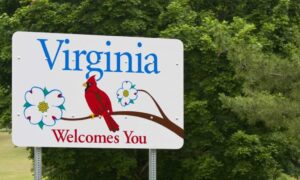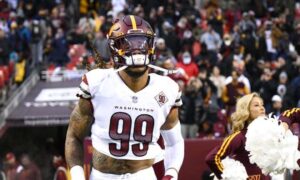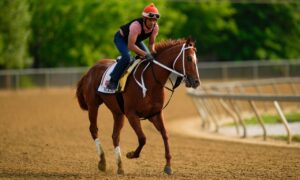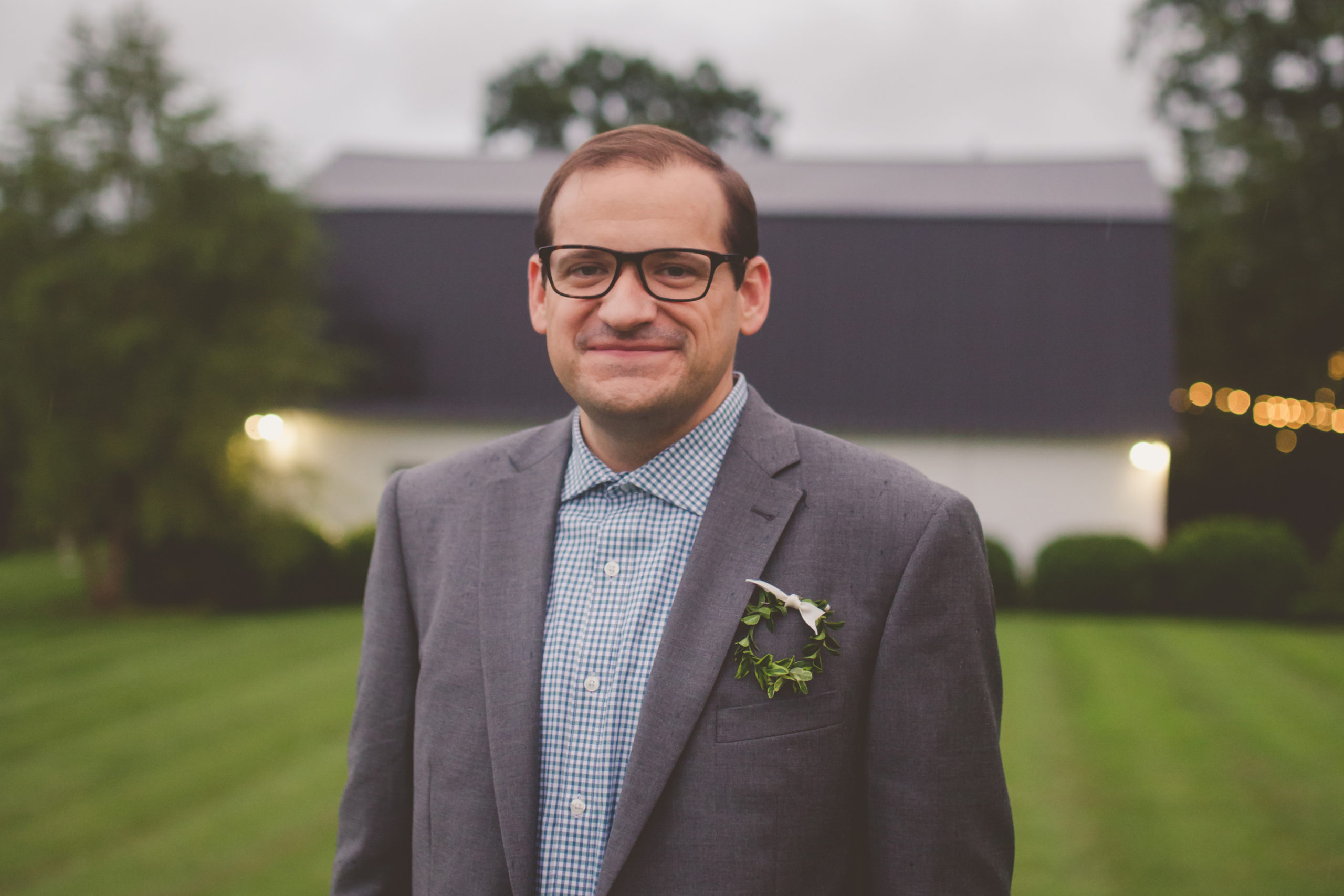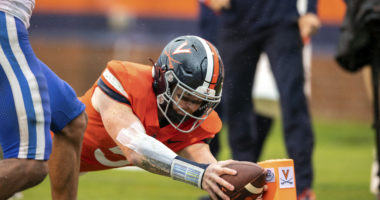
Editor’s note: The forthcoming content reflects the perspective of the writer.
After a year of twelve months, the Virginia sports betting market has witnessed the launch of 11 sportsbooks and a staggering $3 billion in wagers. Now, it is poised to embark on its next phase of evolution.
The final 2021 numbers will be delivered in a matter of weeks, and it is highly likely that Virginia will officially hold the record for the most successful state launch in the history of legal sports betting in the US, based on various metrics.
However, there is room for improvement. It is not too late to make it better.
Despite the well-intentioned yet practically ineffective restriction impacting colleges and universities, the introduction of VA sports betting remains a highly remarkable event.
Lawmakers likely had good intentions and possibly felt compelled to implement Virginia’s college betting ban on in-state schools.
After a year of sports betting, it is now time to reflect and make improvements. The Virginia sports betting market is poised to grow, improve, and thrive as a result.
College betting ban not unique to Virginia
Around half of the states in the US that permit sports betting have implemented a form of prohibition on betting specifically on college sports.
In the state of Virginia, it is prohibited for bettors to place wagers on games featuring Virginia schools. Additionally, betting on collegiate games or events held in Virginia, regardless of the participating teams, is not allowed. Furthermore, VA sportsbooks are restricted from accepting wagers on collegiate “player prop” markets.
New Jersey, the biggest betting market in the nation, has a ban in place (which voters recently chose not to reverse). New York, potentially becoming the leading market in the future, recently entered the sports betting scene after much anticipation. However, like New Jersey, New York also decided to prohibit bets on local universities.
Undoubtedly, these markets are incredibly vast. Virginia fell just short of achieving a state record in November as it accumulated $402.6 million in wagers. In contrast, bettors in NJ wagered three times that amount during the same month, reaching an impressive $1.26 billion.
Despite initially attracting many bettors from New York, New Jersey only has a limited number of notable in-state universities, such as Rutgers and Seton Hall. As a result, the ban on college betting for these schools in New Jersey does not have as significant of an effect on the local market compared to New York.
However, the betting market in Virginia is significantly restricted due to the absence of any major professional teams. As a result, Virginia sports bettors are prohibited from placing wagers on NCAA Division 1 football programs within the top-tier Football Bowl Subdivision (FBS).
- Liberty University
- Old Dominion University
- University of Virginia
- Virginia Tech
Furthermore, betting on Football Championship Subdivision (FCS) D-1 football programs is also prohibited.
- Hampton University
- James Madison University
- Norfolk State University
- University of Richmond
- Virginia Military Institute
- The educational institution known as the College of William & Mary
In addition to these schools, all of the aforementioned schools also boast D-1 basketball programs.
- George Mason University
- Longwood University
- Radford University
- Virginia Commonwealth University
College administrators understandably cautious
What is the reason behind states implementing a college betting ban? Take Virginia as an example, why are bettors not allowed to place bets on 14 in-state schools, while they have the freedom to bet on the 336 Division I basketball teams located outside Virginia?
If our intention is truly to safeguard student-athletes, why should there be a distinction between out-of-state college students and in-state ones? If sports betting is genuinely considered to be highly risky, shouldn’t this alleged protection extend across state lines as well?
In actuality, the majority of states implement bans on college betting in order to satisfy voters. When legislators develop sports betting laws, they require the support of their constituents. Additionally, having the endorsement of college administrators is beneficial.
However, college officials have generally been reluctant to endorse the shift towards legalized gambling. Their concerns stem from the potential for future point-shaving scandals and the preservation of integrity within the college sports system. Officials argue that they are safeguarding student-athletes from potential exploitation, as they worry that if these students were to lose a game, they might face threats from disgruntled bettors.
The truth is, imaginary state lines will not serve as a barrier against abuse. Although such threats are uncommon, they can be easily accessed with just a click.
Furthermore, college administrators have consistently overlooked any apprehensions associated with betting when there is a lucrative agreement on the line. A recent instance exemplifying this was the University of Maryland’s recent collaboration with sports-betting operator PointsBet, cementing a long-term partnership. With the prevalence of such agreements increasing, it is likely that college leaders, constantly seeking avenues to enhance their financial resources, will encounter fewer criticisms.
Let’s get real about Virginia sports bettors
During the inaugural year of legal wagering, we gained valuable insights into the preferences of Virginia sports bettors. Notably, it was revealed that basketball holds a special place among local bettors, with the NBA accounting for 21.5% of all wagers in 2021, closely followed by NCAA hoops at 6.3%.
The college basketball score would definitely be higher if bettors had the opportunity to place bets on the Cavaliers, Hokies, Flames, and other Virginia teams. While the Washington, DC, professional teams may be considered “home” teams, they do not have the same level of significance as Virginia’s major college athletic programs.
Furthermore, despite the college betting ban, Virginians are not refraining from placing bets on Virginia schools. Despite the hopes of legislators, regulators, administrators, and anti-gambling activists, it is evident that the ban does not deter individuals from engaging in such betting activities. If a bettor is determined to place a wager on VCU, VMI, or JMU, they will find a way to do so, as they are still able to partake in such betting endeavors.
Bettors from Virginia who reside near Tennessee, West Virginia, Maryland, or Washington, DC, have the convenience of driving a short distance to legally place bets on Virginia schools. However, many of these bettors choose to cross state borders to gamble on significant games that are not accessible in Virginia. PlayVirginia has received numerous reports from these bettors, indicating that valuable betting funds are being taken out of Virginia.
Even worse, the ban on college betting is compelling certain bettors to return to the illicit offshore market. In 2018, the US Supreme Court invalidated the Professional and Amateur Sports Protection Act (PASPA). Prior to this groundbreaking ruling that paved the way for widespread sports betting in the US, individuals who wanted to place bets outside of Las Vegas had to seek alternatives elsewhere.
Before states legalized sports betting, it was quite common for people to send money to an online sportsbook located in a foreign country. They would also rely on local bookies who had unknown connections or even place bets over the phone with associates in Las Vegas.
Unfortunately, they continue to be the preferred choices for bettors who are currently confronted with betting limitations in their area.
First step toward lifting Virginia’s college betting ban
At first, the college betting bans were implemented under the pretext of ensuring student-athlete safety. However, we now understand that this reasoning was flawed, revealing it to be nothing more than mere superficial measures.
There is still time to rectify the situation.
Fortunately, reason has prevailed in Old Dominion as certain individuals have taken a more sensible approach. In a recent development, Virginia Del. Schuyler T. VanValkenburg has put forth HB 1127, a proposal aimed at lifting the prohibition on college betting in VA. Additionally, the Senate has introduced a corresponding bill, SB 576.
Virginia sports betting is now in its second year, and the introduction of these bills is eagerly awaited. Contrary to concerns, the legalization of sports betting did not have a negative impact on Virginia society. There was no surge in disgruntled bettors harassing athletes and coaches, nor were student-athletes involved in any point-shaving or game-throwing activities.
As we have come to understand, a well-regulated market ensures safety and serves as the most efficient means to identify and eradicate corruption.
The creation of legal sports betting in Virginia has been immensely significant, generating tens of millions of dollars in fresh tax revenue.
The booming market is in need of the desired betting options that bettors crave. It is high time to revoke the ban on college betting, fulfill the demands of bettors, and ensure Virginia’s sports betting market is safe and healthy.


